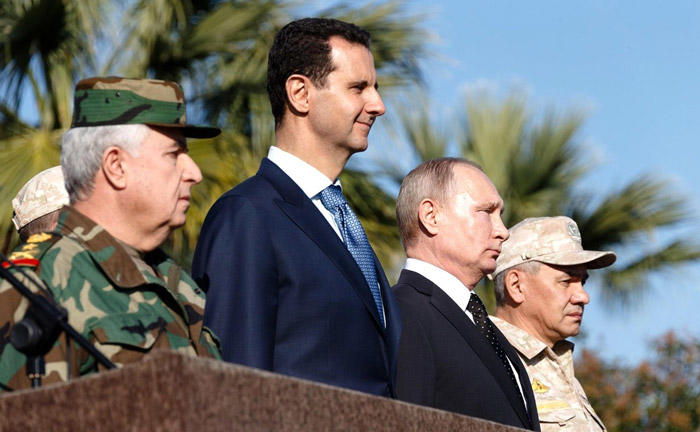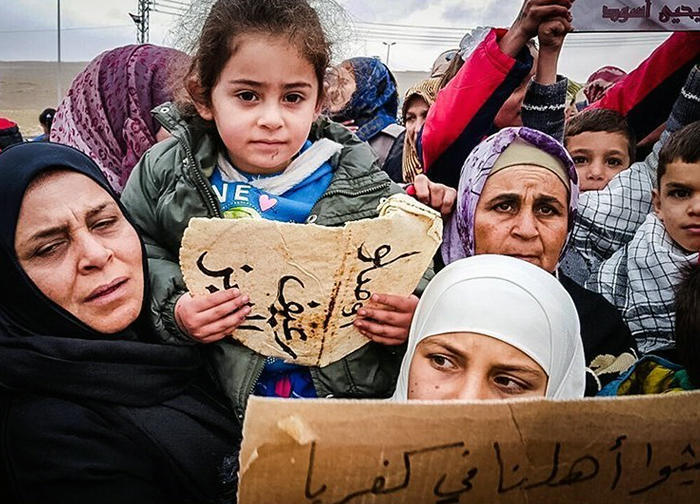Russia’s direct entry into the Syrian conflict in September 2015 was spurred by a plethora of motivations. Russian scholars Rawi Abdelal and Alexandra Vacroux unpack the various rationales.

By Rawi Abdelal and Alexandra Vacroux
Fourth in a series that asks Weatherhead Center affiliates to examine the dimensions shaping the Syrian conflict.
Russian President Vladimir Putin has confounded American policy makers with his agenda in the Middle East for at least the past decade. Russia’s stance has varied in its accord with Western policies, at times seeming to align—as in Libya and Yemen—and other times shirking, by showing indifference toward Iran’s nuclear program violations. Western diplomats have long puzzled over Putin’s real aims in the region and whether or not he could ever be a reliable ally.
Russian airstrikes in Syria in 2015 marked a turning point in its foreign policy. Taking full advantage of the vacuum created by President Obama’s failure to intervene, Russia stepped in to lead, signaling Moscow’s new commitment to involvement in the region. Just two years prior, Putin had refused to export missiles systems to Syria, raising hopes in the West for a possible partnership that could help to stabilize the region. It was not to be. Russian officials fanned speculation and confusion about its actions in Syria. To the public, they skewed the purpose of intervention, first claiming to target Islamic State, then “terrorists” in general. In fact, Russian bombs fell on anti-Assad rebel groups, some of whom were armed and trained by US intelligence agencies. Thus began a protracted “proxy war” between the United States and Russia that continues today.
Putin is now entering his fourth term as president, buoyed by high levels of public support. Syria is facing its eighth year of conflict, and is now a devastated country, in large part due to the deadly Russian bombing strategy that destroyed densely populated areas and many thousands of Syrian lives. Last December, Putin and Assad together declared victory over Islamic State and announced the eventual reduction of Russian armed forces. Nevertheless, the proxy war rages on, with Russia’s continuing air and ground assaults against US-backed rebels.
Taking Syrian intervention as a pivot point in Russian foreign policy, the Weatherhead Center for International Affairs asked Faculty Associate Rawi Abdelal and Alexandra Vacroux—director and executive director of Harvard’s Davis Center for Russian and Eurasian Studies, respectively—to demystify Putin’s overarching goals in the region, and to consider what they might mean for future relations with the West.... Read more about Insight on Syria: What Are Putin's Motives?



